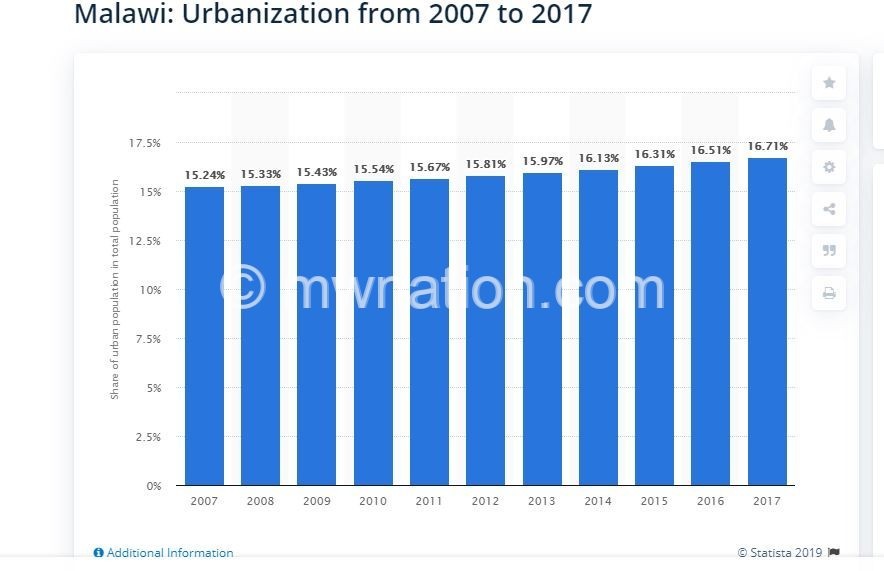‘MW could benefit from urbanisation’
The growing urban population has potential to improve economic opportunities and living conditions across Malawi.
This is according to a World Bank assessment titled Managing Risks for a Safer Built Environment in Malawi: Building Regulatory Capacity Assessment, which was funded by the ACP-EU Natural Disaster Risk Reduction Programme.

World Bank figures show that Malawi remains one of the least urbanised countries in Africa with approximately 16.7 percent of Malawi’s populations living in urban areas. The country is urbanising at a moderate rate of approximately 3.7 to 3.9 percent per year.
If growth continues at this rate, by 2030, approximately 20 percent of the population will be city dwellers, reaching 30 percent in 2050.
This is particularly significant given that approximately 69 percent of the population are living under the international poverty line of $1.9 per day.
Reads the report in part: “The share of agriculture to gross domestic product [GDP] and to employment has been falling and that of more productive sectors such as industry and services has been increasing. Projected urbanisation and economic growth rates for the period from 2010 to 2030 show that even a slightly increased rate of urbanisation could enhance Malawi’s long-term economic prospects.
“With its low base and moderate rate of urbanisation, Malawi is well-positioned to formulate plans to maximise the benefits and manage the challenges of urban agglomeration in the future.”
However, the assessment observes that challenges are also associated with this shift and concentration of population with Lilongwe for instance, having 76 percent of residents estimated to live in informal settlements which are mostly characterised by a lack of access to public services.
“Strengthening the building regulatory framework will support Malawi to achieve its urban and rural development agenda, articulated in the Malawi Growth and Development Strategy [MGDS] III and Vision 2020.”
For example, MGDS III articulates the need to undertake comprehensive disaster risk assessment and mapping covering all sectors and disseminate the results to enhance risk-informed development planning.
According to the 2019 April National Urban Policy (NUP), Malawi is yet to fully optmise gains associated with urbanisation as resulted in environmental, economic and social changes which do not advance, or in some cases negatively affect livelihoods, and the growth of the economy. The policy document, under the Ministry of Lands, Housing And Urban Development affirms that rapid urbanisation parallel with weak capacity among the lead urban development institutions, is responsible for uncontrolled urban growth and increased urban sprawl and inefficient land management.
Former Secretary for Lands, Housing And Urban Development Janet Banda said in a statement accompanying the policy that NUP will provide an opportunity to improve the way our cities and human settlements are planned, developed and managed so that urbanisation in the country’s cities and urban centres can be sustainable.
“The successful implementation of the policy will depend on the improved coordination within the sector with all stakeholders committed to work with Government,” she said.





